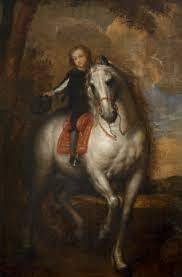Where do you get your ideas from?

I wrote in a previous post about targeting stories to specific outlets or writing to fit a specific theme. The combination of the two now means I have placed a dozen stories in the past six months with a similar number waiting for a response.
But the traditional question to ask authors is where they get their ideas from. Avoiding the traditional jokes (I have a man who delivers the once a week) my honest answer is “they just arrive”.
I can point to prompts such as an anthology theme, or when I was writing a story a week during lockdown I had asked people to provide a lead character, location and genre I would use as a starting point. Other stories start as a title that pops into my head or something I read or see on the television and think “what if…”
A great help is having read an awful lot of stories (two or three books a week for the last 50 odd years) which means there is a lot of otherwise useless information in my head which suddenly links together when something becomes the germ of a story.
I have also internalised a lot of structures and styles so plot and characters accrete like crystals on a seed in a supersaturated solution (look it up if you didn’t do it at school. It’s really cool to watch).
Reading doesn’t mean you copy someone’s style in detail, just that you get the essence of how a story works from thinking about other people’s stories. I’ve always believed I only have one talent (everything else is a skill), which is pattern recognition. The more you read, the more you absorb patterns and can fit your ideas into one that works for the story.
I sometimes get an idea for a story when researching a different one. I wanted to write a story about the Tarot and a sorcerer who had placed his soul in the Fool card so that it would persevere as a standing wave as people used the cards. He would then resurrect himself in someone else’s body via a Tarot reading. I Googled royal fools to find a suitable candidate and came across Jeffrey Hudson or Lord Minimus, who was a fool in the court of Charles I. I may still use him in the original story, but his life was so fascinating he deserved to be a hero rather than just a villain. When there was a call for historical sword and sorcery tales, he was the perfect character to use. There were enough gaps in his biography to slot in a number of tales which fitted in with historical fact.
He grew up on the estate of Lord Buckingham, being just a couple of years older than the second Lord Buckingham who had an equally colourful life and was a perfect “frenemy” with a relationship that could echo Leiber’s Fafrhd and Grey Mouser (I didn’t mention Hudson was less than 2.5 feet tall for most of his life but mysteriously doubled in height after being captured by Barbary pirates).
He fought in the civil war and was exiled from the court of the widowed queen when he killed a man in a duel (the man being armed with a water squirt and him with a pistol. He had the bad luck to come up to London at a time of anti Catholic fervour and was imprisoned in the Tower of London for several years. Co-incidentally one of the architects of the attacks on Catholics – Titus Oates – came from the same village in Rutland (he was England’s smallest person from England’s smallest county).
I had already researched the period to be able to include stuff about The Royal Society in a novel so the rest of the background fell into place quite easily. The challenge was to write stories that lived up to the wonderful source material. Tim Powers makes it look easy!



